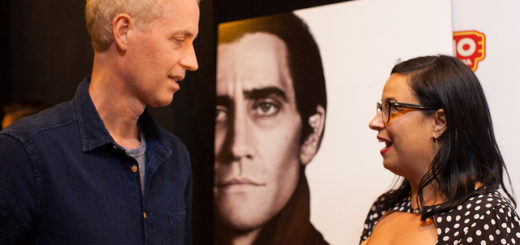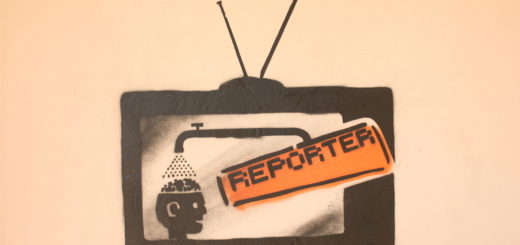Standing Up, Falling Down @Nashville Film Festival
Nashville Film Festival Coverage via Jason Sparks, Our Man in Nashville
Matt Ratner’s Standing Up, Falling Down is about two characters trying to figure out the next chapter in their respective lives, which makes it all the more effective that the two leads are actors we already know, but both are playing against type. We’re used to Ben Schwartz as the spoiled dolt Jean-Ralphio on Parks & Rec; here, he’s a standup comedian moving back in with his parents on Long Island, after a sojourn in LA fails to bring him fame and fortune. Desperate to escape his home–a dad who barely talks, a mother who thinks he’s still 12, a sister who (despite also living at home as an adult) trades barbs with him mercilessly–he sets out for a night at a local bar. That’s where he meets Marty, a dermatologist who also has a penchant for wisecracks–but an even greater penchant for drinking. Within minutes of meeting Marty, we see him dispense jokes, but we also see him spill a drink on a bartender and relieve himself into a sink. He can be pleasant and hilarious, but he’s also obviously self-destructive. Playing Marty, and giving the performance of a career, is Billy Crystal; we knew he could do pleasant and hilarious, but he’s just as capable of playing self-destructive.
Both men are damaged goods. Scott is not only facing the possibility of giving up on a standup career; he’s also facing the home and world he gave up to pursue it, particularly with regards to Becky (Eloise Mumford), whom he nearly married, only to abandon her enroute to LA. Marty, we learn, has buried two wives, and, when he’s at home, repeatedly tries and fails to contact either of his children.
Most of the narrative in Standing concerns how the two men do–and don’t–help each other. Scott is by far the recipient of the most help. Marty encourages him to write jokes based on his actual life, which has of course been a successful model for many comics; he begins to return to open-mic nights, where he kills–for an audience that includes his sister. Also attending is Becky, who begins to actively question the bland husband she settled for in lieu of Scott (which is not the most surprising narrative arc in the world, but how it plays out is not so predictable.)
Not attending the open-mic night, however, is Marty, despite having promised to do so. In an arc not dissimilar to A Star Is Born, the younger one is rising (or re-rising, in this case,) but the older one is falling, or, perhaps, finally recognizing the fall he’s been in for some time. Soon after Marty gives Scott the advice that refreshes his standup career, we see Marty and Scott together at a beach, where Marty finally scatters his first wife’s ashes. It’s an unusual choice for Marty—it bespeaks moving on, when Marty usually prefers looking backwards (re-watching the 1986 World Series, which he once watched with his son) or not looking at all (getting high with Scott.)
Of course, Scott is not exceptionally fond of looking at his own life, which is why Marty’s advice is such a game-changer: not only does it give him fresh standup material, it gives him, naturally, a fresh perspective on his own life, and how it has played out, especially with regards to Becky. It’s perspective that positions Scott to move past this current retreat and defeat.
That’s not, unfortunately, the case for Marty. In a genuinely painful scene, Marty finally goes to the home of his estranged son (Nate Corddry, recently seen as Neil Simon in Fosse/Verdon), hoping to make peace; the son won’t even let Marty into the house, telling him off loudly and violently in front of his own son (Marty’s grandson, in other words). It’s a moment of surprising rawness in the film, pain in every corner—pain I understood, as an ACOA myself. At the core of the advice Marty gives Scott throughout the film is this: “Regret,” he tells Scott, “is the only thing that’s real.” It’s real, the film seems to say, and its capacity to be overcome is on a case-by-case basis.
Without disclosing exactly what transpires in Act III, Scott is given a chance to overcome his regrets, and Marty…isn’t. It turns out that Scott is doing the titular standing up, and Marty is destined to do the falling down; his fall, which is heartbreaking and at the same time something of a misdirect, only further puts Scott in a position to move forward in his own life. Ultimately what we have here is a film in which a lot of familiar faces take on unfamiliar roles to tell a story about what happens when humans re-examine their roles, and how said roles are played.






















